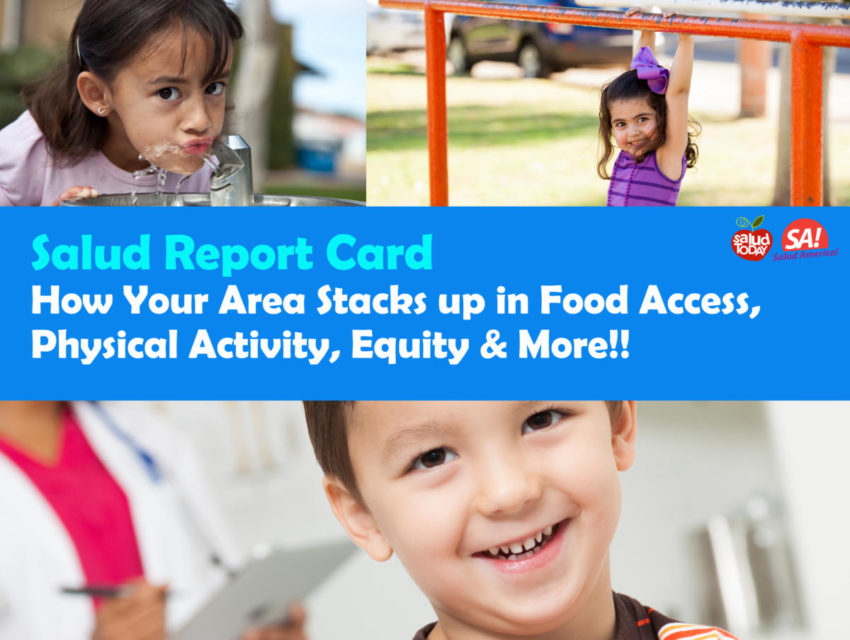Salud America! this month launched the Salud Report Card, a free online tool where people can select their own county and get customized data on food access, physical activity, and equity issues compared to the state and nation.
The new Salud Report Card also offers policy solutions, case studies, and share-ability to inspire people to start and support healthy changes in their communities.
The tool, which helps identify local health issues and strategize solutions, is available online at the website of Salud America!, a national Latino childhood obesity prevention network led by Dr. Amelie G. Ramirez of the UT Health Science Center at San Antonio and funded by the Robert Wood Johnson Foundation (RWJF).
“We see this tool as a great way for activists, parents, educators, and healthcare professionals to take action by engaging local leaders in conversations that will create healthier communities for Latino kids and the generations to come,” said Dr. Ramirez, professor and chair ad interim of the Department of Epidemiology and Biostatistics and director of the Institute for Health Promotion Research at the Health Science Center.
“The tool also compares several data sets between Latinos and non-Latinos to identify health equity issues, and includes a map of where populations are particularly vulnerable to health issues.”
Salud America!, which was established in 2007, has recruited a national online network of 50,000 parents, school personnel, health professionals, and community leaders who support its mission: “End Latino childhood obesity by communicating good health and driving people to start and assist healthy changes in their schools and communities.”
The network develops online content and resources, educational case studies, action campaigns, data tools, social media events, and marketing geared to healthy change for Latino children.
More than 38 percent of Latino children ages 2-19 are overweight or obese, compared to 28.5 percent of White youth and 35.2 percent of Black youth. Latino children also face barriers in access to healthy foods and drinks and physical activity, especially among those ages 0-5.
“We are excited to continue to develop new tools and new content that can help Latino and all children reach a healthy weight,” Dr. Ramirez said.


